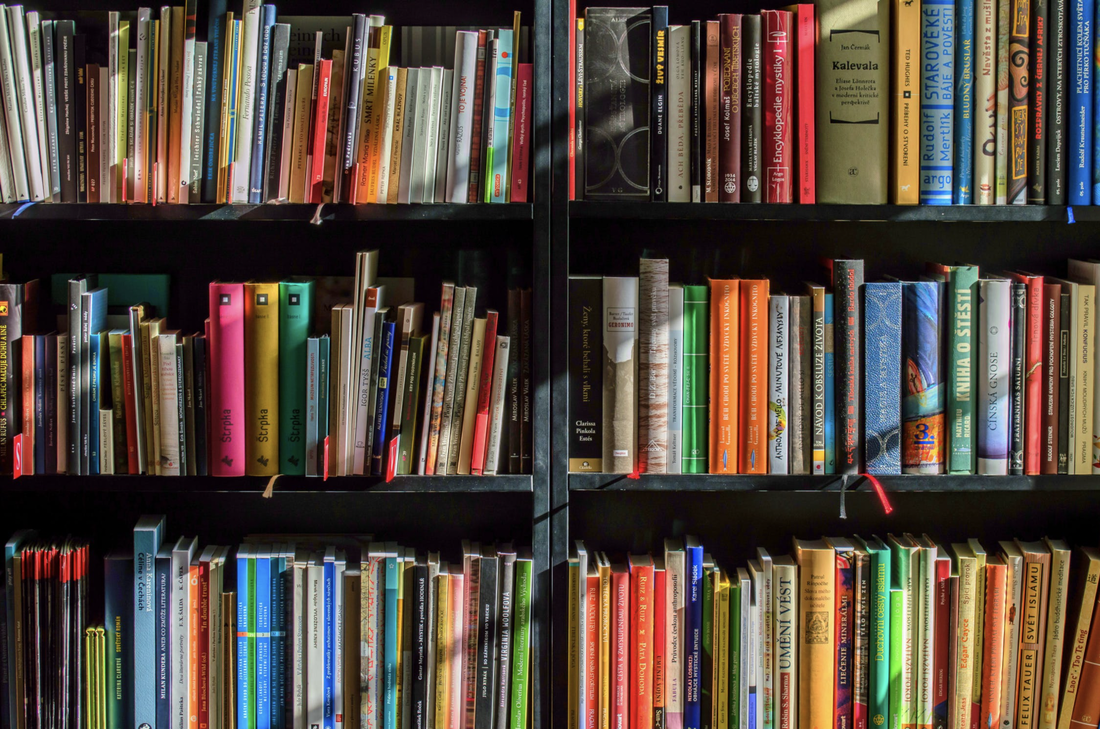|
By: B. Mizne When I was around ten years old, I read the entirety of the Percy Jackson and the Olympians series in a single week. The following week, I read the entirety of its sequel series, The Heroes of Olympus. Then came the Spirit Animals, Animorphs, and later The Throne of Glass and the Robert Langdon series. I was an inexhaustible and insatiable bookworm, until I wasn't.
I dismissingly attributed this disappointing outcome to an overbearing workload or lack of attention and put it aside. But, after a few months ceaselessly writing essays for the IB and noticing a steady decrease in vocabulary sophistication, I felt the need to understand why I stopped reading, despite desperately wanting to, and how I could start again. I noticed I wasn't the only one feeling this way. Thanks to the YouTube recommendation algorithm, I found a similar worry in Sabrina, one-third of the brains behind Answer in Progress, a channel that dares to ponder, experiment, and research complex concepts to answer questions we are too afraid (or busy) to ask. She postulates that people stop reading for four reasons: because we don't have time, we don't have the energy, we don't have the practice and we're reading the wrong books. Those who are now going through the IGCSEs and the IB can sympathise, as the work we are tasked with often seems inhumane and virtually impossible to complete, rendering little time for pleasure reading. Besides, the books we manage to read are usually obligatory by the school and can be singularly boring, which can make us easily distracted and tired. Personally, I can't read books because the narcissism kicks in as soon as I start. “Am I better than everyone because I'm an intellectual?” overruns my thoughts. Despite this, I often feel distracted by the smallest things, and end up numbingly scrolling through my phone. But I feel like there is a more intrinsic and subconscious reason as to why I don't read. It certainly can't be lack of time, because I find the time for TV shows and YouTube spirals and TikTok binges. So why can't I read? It's the result of a phenomenon called information overload (or overstimulation), where we constantly feel the desire and need to be as stimulated as possible. Think about it: have you ever found yourself mindlessly watching a YouTube video and, five minutes in, scrolling through the comment section or looking for another interesting video with an appealing thumbnail to click on? Or feeling an inherent urge to watch an episode of a TV show while you eat? Or trying to get work done but instead spiraling down a rabbit hole that leads you to odd history videos and dubious news articles about Susan Boyle? Here's the science behind it: Dopamine is a “happy hormone” that serves as a motivator to “keep doing what we're doing”. When we were hunter-gatherers, the brain released dopamine when we spotted a cluster of bright berries in a bush or a deer in the distance. Today, the hormone is released when we go shopping or smell cookies in the oven. Dopamine is released when your brain is expecting a reward, so that the mere anticipation of an activity can lead to pleasurable sensations. Social media has weaseled its way into our dopamine reserves and gripped it tightly. Instagram, Twitter, Reddit, and TikTok are incredibly simple to use and addictingly entertaining. Using social media and watching TV shows releases happy hormones, so it is natural that we would subconsciously try to maximise that good feeling. Overstimulation is the result. A native instinct such as hunger could now be directly associated with an artificial stimulant like Netflix or YouTube, to the point where you can't watch an episode of your favourite series without a snack in hand, and vice versa. Philipp Lorenz-Spreen of the Max Planck Institute for Human Development, one of the main proponents of a study into this phenomenon, reached the conclusion that this abundance of information and ease of access “exhausts our attention” and “our urge for ‘newness’ causes us to collectively switch between topics more rapidly”, which explains the global popularity of TikTok and its ingenious For You Page. “It seems that the allocated attention in our collective minds has a certain size, but that the cultural items competing for that attention have become more densely packed”, said Professor Sune Lehmann from DTU Compute, a colleague in the study. That is why we can't listen to a full song before skipping to the next. It's why we can only focus on a task for short periods of time. It's why we feel bored after ten minutes on YouTube, why we can't go to the bathroom without our phones, and why we can't read, even if we really want to. To get back into the habit of reading, there are various methods. Sabrina figures that narratives or fiction books can captivate our fleeting attention better, and that reading while listening to the audiobook offers that sweet overstimulation we adore. However, her main takeaway is that reading is slow, and that's what makes it fun. In the golden age of information, it can be overwhelming to be bombarded with various topics all the time and reading offers an escape to the outside. We must acknowledge that reading requires patience and presence, and that's a good thing! So, find a comfortable spot to lie down, pick up that book your friend recommended years ago, dust it off and read. Sources:
0 Comments
Leave a Reply. |
Categories
All
Archives
June 2024
|

